The Cammus DDWB21 is the cheapest direct drive sim racing wheel for PC in 15Nm torque output range. At $499, before shipping and taxes, there’s nothing else with that output for this price.
You’re saving a chunk of change if you plump for the Cammus, but, is it too good to be true?
What’s in the box
As you can probably tell, the DDWB21 is PC only, and as far as aware, there are no plans for console compatibility at this time.
As it’s coming all the way from China, mercifully it’s well packaged to protect the unit from the long journey and arrives semi-assembled.
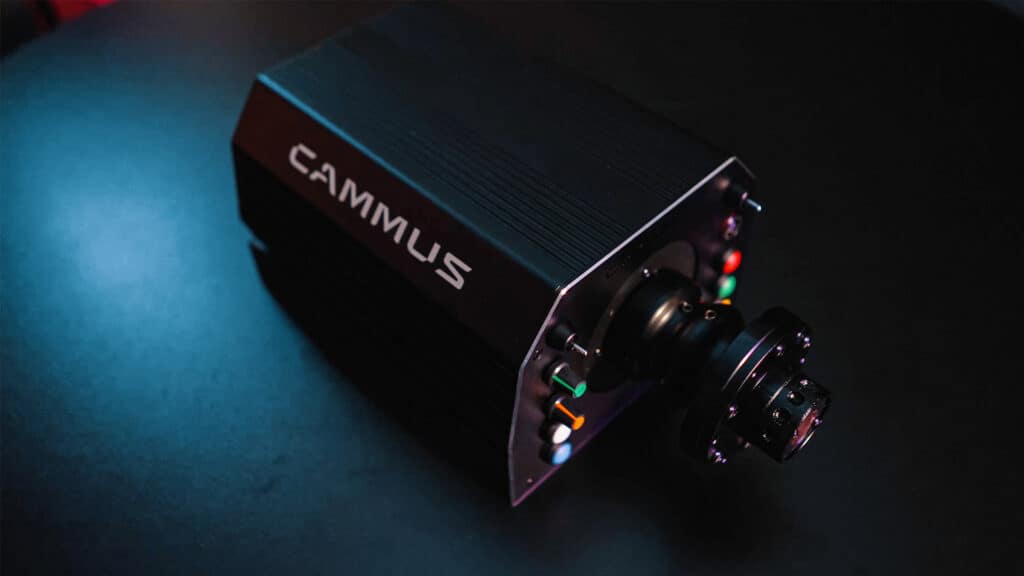
Included is the large and heavy, 11.5kg, wheel base, a heavy power supply, USB-A cable, the quick release system, four bolts, washer and spring washers but no instructions.
Yup, zero paper instructions, which is where things start to unravel.
We were able to assemble our review unit relatively straightforwardly, thanks to the manufacturers’ online video guide, at least.
Market positioning
Of course, the $499 entry point is extremely tempting, but you will likely need a steering wheel to boot. Handily, Cammus does offer a GT style RSC wheel or the formula style GTS wheel you see here, and a bundle with this and the wheel base is still incredible value at just $700/£570.
By the time your unit arrives you will have already negotiated the (outdated) website, managed to find your way past their VRRC sponsorship, the striking PowerPoint 2007 transitions, the electric go kart, racing gauge and the electric supercar.
Yes, Cammus also makes an electric supercar…
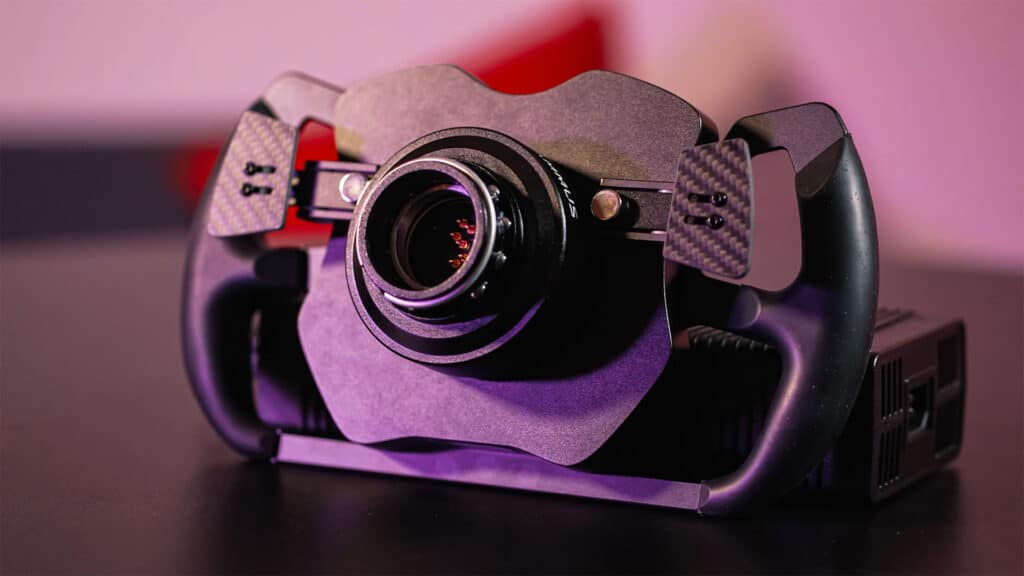
Here you will find the ‘windbooster’ online store where you can view all the sim racing products and order. Delivery takes a couple of weeks at best – not Cammus’ fault – but that’s another issue, it’s expensive!
For delivery of this set-up to UK you’re looking at £160, and to the US ~$140, and that’s before you may encounter any localised taxes or duty.
For us to have bought this exact unit here and paid to ship, you’re at £750, or around $840 to US before tax.
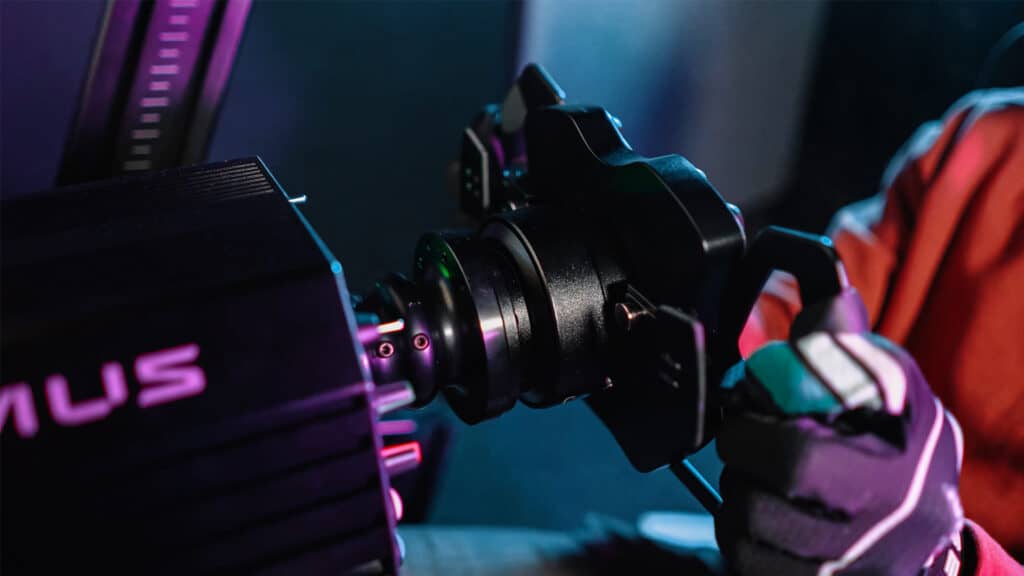
You can then start to weigh it up against the competition, based on the total shipped price, as opposed to the initial list price. For example, in the UK, a Thrustmaster T818 and a steering wheel can be delivered for £710, although admittedly on paper, it outputs less peak torque.
Mounting to your rig
The base unit is put together well, with a sturdy build and channels for side mounting
Buttons on face of the base aren’t something we see often, but definitely a plus as it’s a bit like a built-in button box. The power button illuminates upon usage as well.
At the rear, there’s a fan, but it looks as if there’s nowhere to exhaust, so feels like a slight afterthought.
After installing a few bolts, and a little tinkering, you’re ready to mount it to your rig. And you will need a dedicated cockpit, mainly because of the size and weight of the unit.
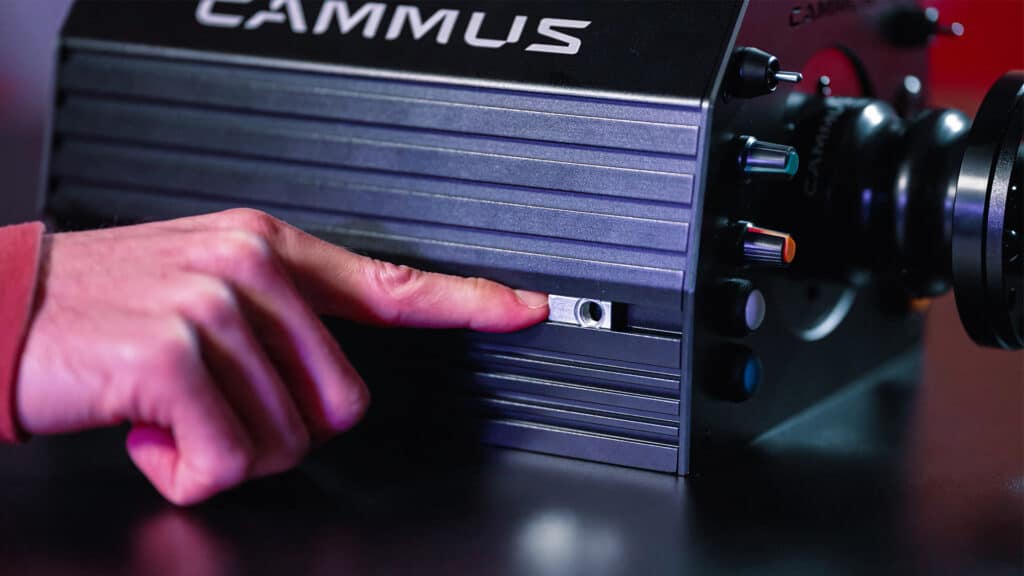
No table mount is available, and anyway, desk mounting would require a bespoke upgrade so really, stick to a metal cockpit.
Unfortunately, mounting is tricky due to unique hole placement. An adapter is available for an additional $29 which makes it compatible with Fanatec brackets and mounting plates, or an adjustable base plate for $49.
We found two holes that worked on our Next level Racing cockpit which meant we didn’t have to drill. That’s fine for temporary mounting just like our testing, but would definitely recommend four holes for long-term usage.
GTS wheel impressions
The formula-style GTS steering wheel we used to test the DDWB21 features a flam rim and is made from 3mm-thick aluminium. There are rubberised hand grips too, that are perhaps too much on the thin side for our personal preference.
On the front, you have six buttons and two pressable rotary encoders.
Around the back is Cammus’ quick release system, which did arrive a little on the ‘greasy’ side. This is a unique system, different in operation to most competitors. We found it easy to attach the wheel to the base, but removing it required some practice with two hands.
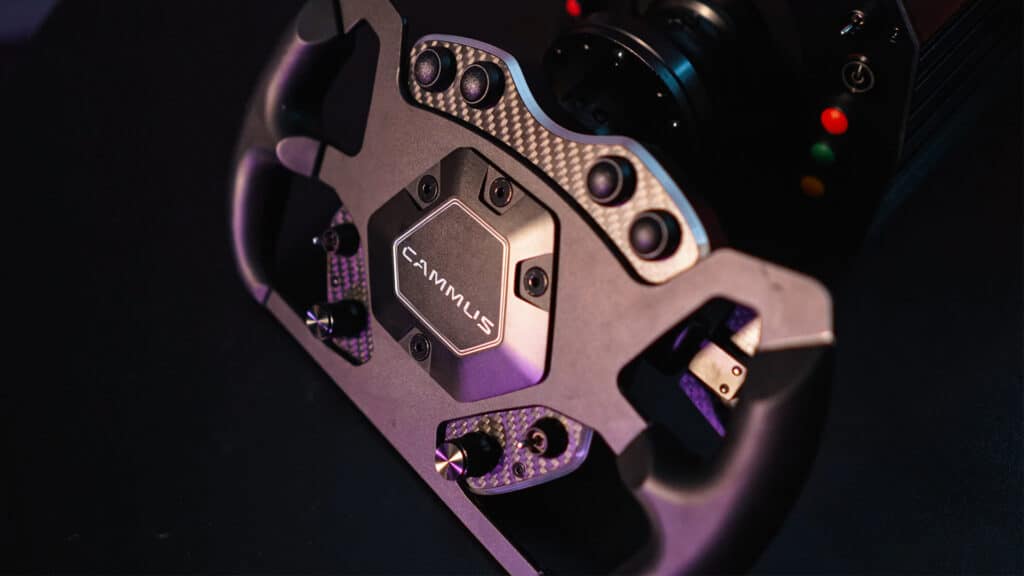
Handily, it affixes to the wheel using an automotive-grade set-up, in theory you could use any aftermarket wheel using standard automotive parts.
A final thought before we get driving – the PC software isn’t the slickest and there isn’t an English language install procedure. There were a few minor bugs too, so there’s work to be done here still.
Hitting the track
Right, after it has arrived and is installed, it’s time to compete using the Cammus direct drive wheel base, and there’s no doubt that 15Nm is powerful.
Using Assetto Corsa Competizione first of all, down the straights the general resistance is powerful, and while it feels enjoyable to hustle through the corners, we felt that there was a slight lack of detail once the wheel was turned.
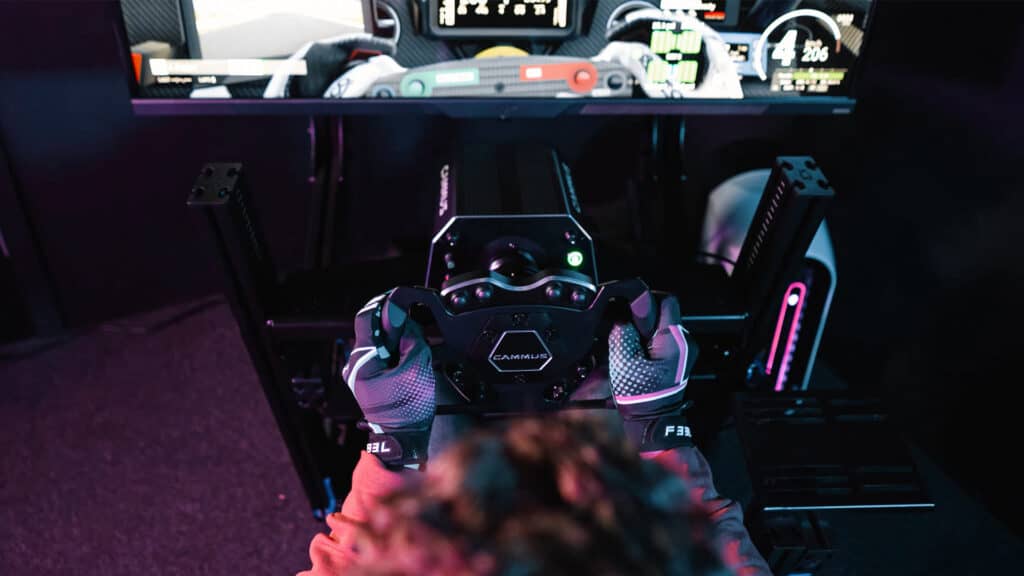
Hitting kerbs sometimes felt like a more traditional non-direct drive device, even though that’s not the case. The fidelity was lacking, although we did find it improved if you lowered the overall force outputted.
On iRacing, we felt there was a greater texture to the road surface, but felt a specific lack of detail when using small steering inputs. For example, trail braking with a limited steering angle left us feeling little resistance and a little unsure of where I was at. The force feedback ramped up exponentially when the steering angle increased, which felt slightly unnatural, too.
Regardless of platform – we also tried titles such as Assetto Corsa, rFactor 2 and F1 22 – as soon as you enter the higher loads in the corners, detail vanishes. You are left with the weight of 15Nm, but a vague feeling.

This combination of high strength and a lack of detail means reacting to slides happens visually not kinaesthetically.
A small word of warning – as slides may be harder to catch with the DDWB21 vs some immediate competitors, the optional emergency stop button may be worth a purchase…
Great idea, fantastic price, lacking in depth
The Cammus DDWB21 is a strong wheel base at an extremely competitive price point. It delivers on raw horsepower, and if high strength is what you’re after at a low price aka “beef for your buck” this is for you.
It has some excellent features that maybe even some of the bigger manufacturers should consider such as buttons on the base and the flexibility of a universal steering wheel mounting.
However, there are sadly a few critical drawbacks that prevent this wheel from being a giant beater.
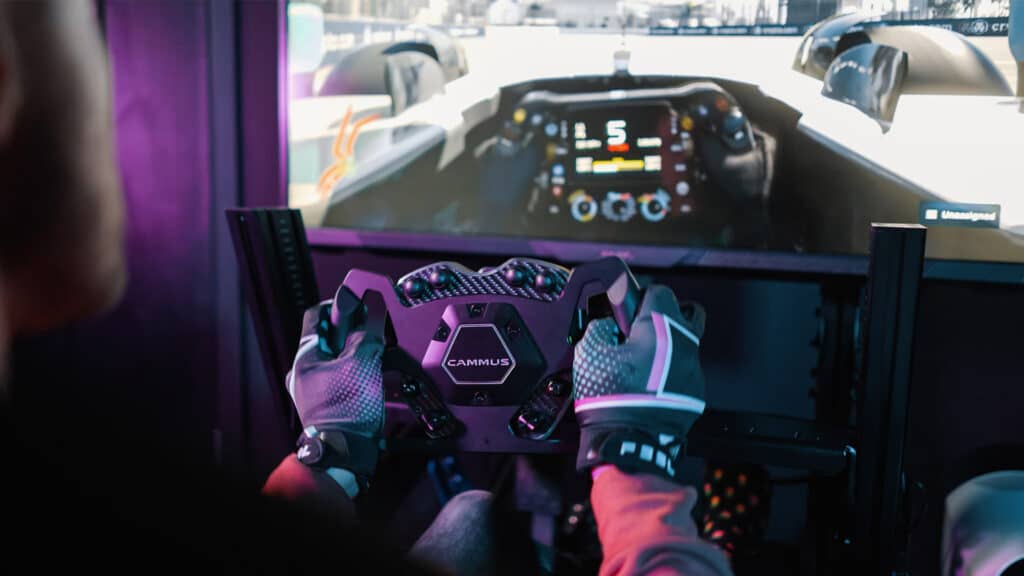
Delivery costs for the west are just too much to keep it in its ideal price bracket and a lack of refinement in terms of feedback and the software means that it’s so close, but not quite there.
If you’re in Asia and want to make the step up from belt or gear-driven to direct drive, this could be an excellent option. However, for those elsewhere in the world, it’s harder to make a case for purchase.
If Cammus can add nuance to the way the motor interacts with the software and wheel, then this would be a must-buy, but until then, it’s not a game changer unfortunately
I would love to see this continuing trend of strong direct drive wheels at more achievable prices for consumers, and Cammus may be paving the way for more of this in future.
Full disclosure: This product was loaned by the manufacturer for review purposes. Here is our review policy.
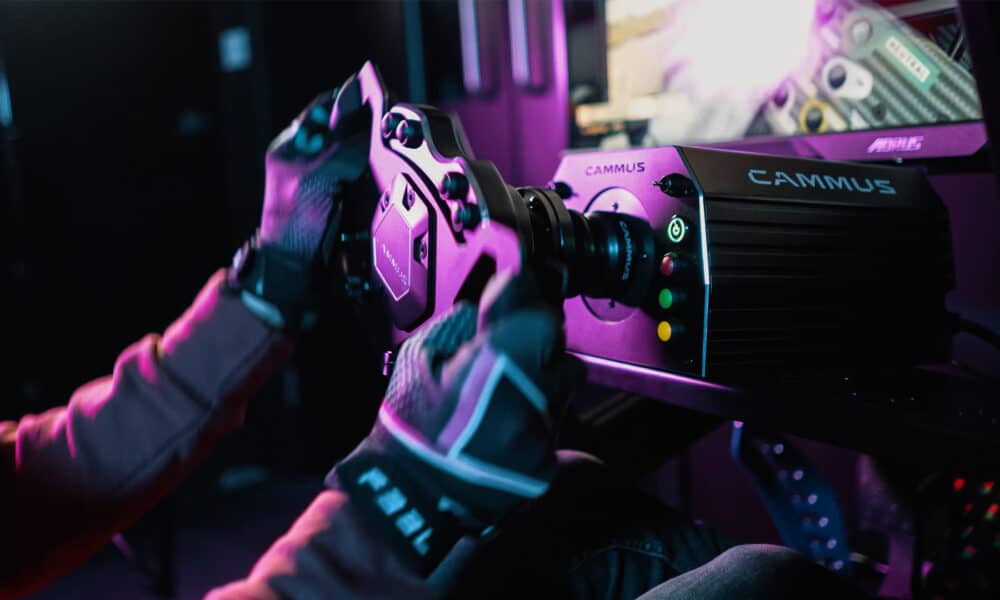





Chat with the Community
Sign Up To CommentIt's completely Free